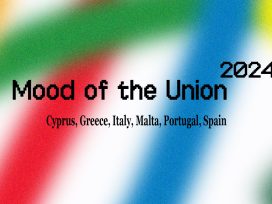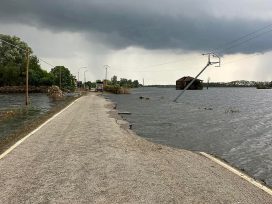‘What has happened to the Left?’ asks il Mulino. On paper, social democratic parties may still be social democratic – but what’s actually going on in politics? The Italian journal looks beyond the country’s borders for comparison: the future of German social democracy; the French Left in the Macron era; the Iberian exception in Spain and Portugal; the return of the Balkan Left; Russia without the Left; the disappearance of the Israeli Left.

Inequality
While focussing on problems, il Mulino also offers solutions. In his book La sfida delle disuguaglianza. Contro il declino della sinistra (‘The Challenge of Inequality: Counteracting the Left’s decline’), Carlo Trigilia has explained how the Left can counter increasing inequality within western democracies. He considers endogenous institutions to be at the root of social inequalities and sees economic growth as a hinderance when poorly redistributed.
Colin Crouch, Lucio Baccaro and Michele Salvati respond to Trigilia, who in turn comments on their arguments. Crouch, the political scientist who coined the term ‘post-democracy’, takes issue with Trigilia’s suggestion that ‘the more distinct and specific the representation of certain interests assumed by parties, as in deliberative democracies, the fewer their voters will be.’ Crouch counters that ‘deliberative democracy favours … new coalitions, which once formed, favour the proponents of equality’.
Economist Baccaro agrees with Trigilia ‘that the relaunch of inclusive economic growth and the rebirth of the Left are closely associated’. According to Baccaro, ‘neither one nor the other will exist without critically re-examining certain sacred cows, including single currency constraints’. He proposes that a ‘Left of the people has to attract the middle ground, those weakened and made precarious, starting with raising income to reduce inequality.’
In response to economist Michele Salvati, who characterizes Italy as ‘a weak and poorly organized state incapable of confronting the challenge of inequality other than through propaganda,’ Trigilia writes: ‘The central problem that politics and the Left in particular must confront isn’t inequality but the political weakness and the inefficiency of the state.’
Also: An interview with Luciana Castellina (b.1929), former communist, journalist and MEP, on her life and the role of women in politics.







